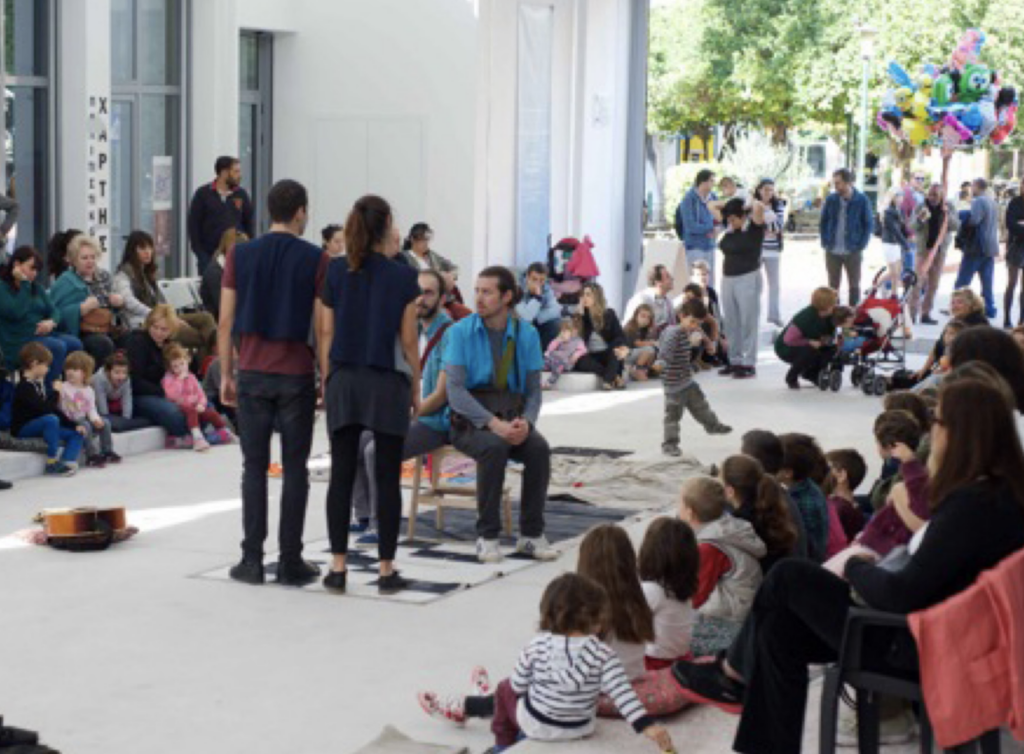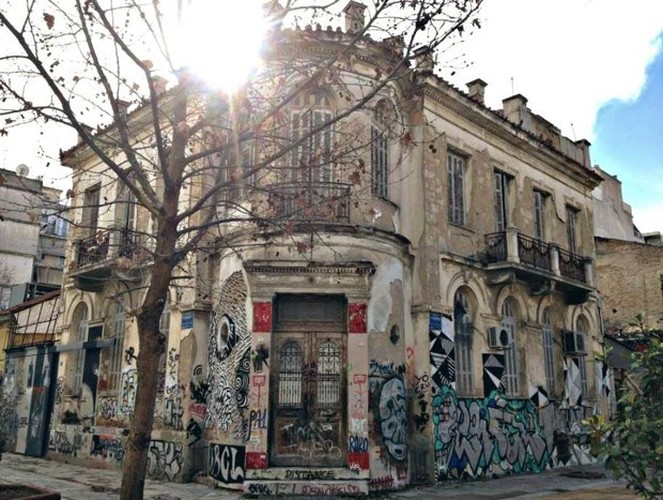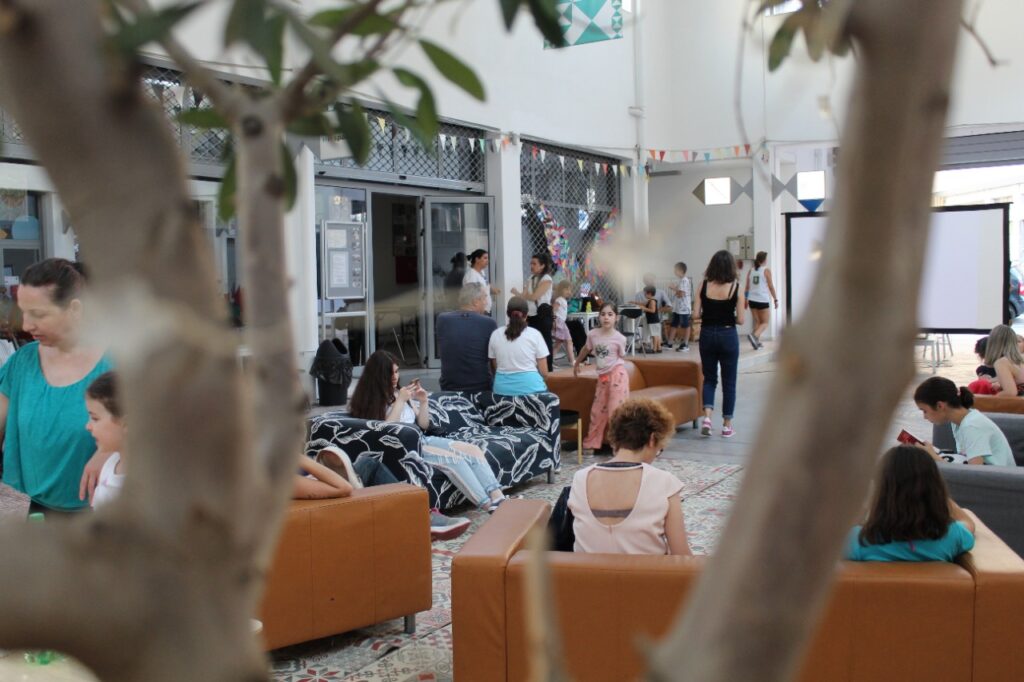As part of the global IHRB project “Building for Today and the Future“, local researchers in eight cities are studying how climate action in the built environment impacts human rights, and identifying examples of built environment socio-economic innovation.
Below are the examples of innovation from Athens. Visit the Building Transformation StoryMap for innovation in multiple countries.
And dig deeper into the Athens research, conducted by Liam O’Farrell, Dimitrios Tsomokos and Vicky Kaisidou.
SynAthina
SynAthina is a platform by the City of Athens that engages citizens in improving city life. It was launched in 2013, in the context of deep austerity and poverty after economic crisis in Greece. The platform allows citizens to submit ideas and volunteer activities for urban improvement, and connects these ideas with government, NGOs, and businesses to foster a collaborative approach to urban development. As of 2023, nearly 450 social impact groups had shared nearly 4,000 activities on the online platform.

One of the lessons learned has been the importance of listening as a starting point:
“Listening sets the tone. In the wake of Athens’ new culture of public-spirited activity, the SynAthina team knew that a top-down citizen engagement initiative would never stick. By simply mapping what is happening in the city, SynAthina sends a strong signal that the city values its active citizens, and appreciates their work. The team has found this a powerful way to build trust. It sets a new tone for any citizen engagement attempts that follow.
And that “actions speak louder than words”:
Because SynAthina is based on community groups’ actions (not their ideas, words, or good intentions), it highlights what citizens are actually doing for their city. The platform has given the municipality new insight into the issues and services citizens care about most – those they are actually motivated to take action on.
Additional examples of lessons learned are at the end of this profile of SynAthina from the Burnes Center for Social Change.
Communitism
Communitism is a project in Athens that revitalises underused and semi-derelict heritage buildings – “occupied” for free in exchange of maintenance – through community engagement and artistic collaboration.
Communitism organises various cultural and educational activities focused on active citizenship and communal engagement. Most recently (2020-23), it delivered two Erasmus+ funded projects focusing on (i) empowering local communities with knowledge and practices for sustainable communal living and space usage and (ii) supporting the sustainable financing and implementation of cooperative housing and communal space projects in Greece.
Listen to a “Space of Urgency” radio interview with Communitism; and check out episodes on other organizers of independent cultural spaces globally.

Refill Athens
Refill Athens aims to revitalize the urban landscape, particularly addressing the issue of vacant buildings. Initiated in 2015, it set out to repurpose some of the 150,000 empty private properties and 1,600 public buildings in the city. It began with pilots using several vacant public buildings, most notably the Kypseli Municipal Market which was reborn as a community, cultural and shopping hub, and a building on the central Varvakeios Square being repurposed as a physical hub for the SynAthina platform.
The strategy involves community engagement and participation in deciding the future use of these spaces. Key actions include consultation methods, support structures within the municipality, impact measurement systems, legal guides, and funding schemes.
Private actors are engaged through consultation with the Hellenic Property Association, which represents the interests of private property owners on a national level, the privately-run Benaki Museum, and Romantso, a social enterprise incubator. Incentives for private actors to engage are access to affordable business space, the opportunity to showcase their work to a wider audience, networking opportunities in the partnership, and to have a positive impact on their home city.
The project transformed abandoned spaces and set up a temporary use funding scheme through a Social Entrepreneurship Fund, an initiative that brought Athens recognition as the most innovative city in Europe by the European Commission in 2018.
Insights from Refill Athens’ projects are gathered together in an “Integrated Local Action Plan“.

Squats and Occupations
Athens is a city that has had a large squatting and occupation scene. Athens’ squats fulfil valuable social roles – particularly during the 2016-17 rapid increase in migration to Europe – given the lack of social housing in Greece and austerity cuts to services. In a city with thousands of vacant properties, and the humanitarian challenges of the migrant crisis and the economic crisis, squatting emerged as a solution to provide shelter and to organize basic services, food and social support that the state has not been able to provide.
Squatting is discussed in academic literature as having philosophical opposition to property speculation and the fixation with growth that characterises much economic discourse. Squatting is opposed to the twin phenomena that characterise many global cities – increasing numbers of empty housing units kept as investments and the growth in homelessness – a trend that has been referred to as ‘necrotecture’.
Squats house the most vulnerable people in society: refugees, immigrants, poor families with children, elderly people, homeless people, political activists, and people undergoing rehab for drug addictions. Squats have contributed to the building of social networks between refugees, their co-nationals and local Greeks, increasing social capital. Squats were historically located in the central Exarcheia neighbourhood of Athens: however as of 2023 many have been raided and closed down by the authorities. The visibility and influence of squatting has decreased but a few landmark squats still remain, including Kypseli’s Lelas Karagianni 37 and the Prosfygika complex on the central Alexandras Avenue.
